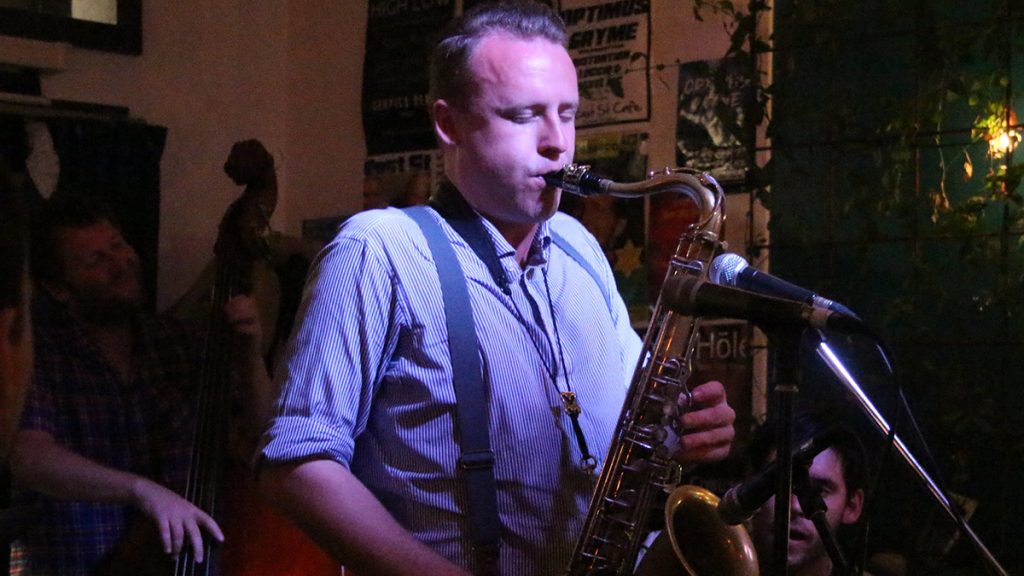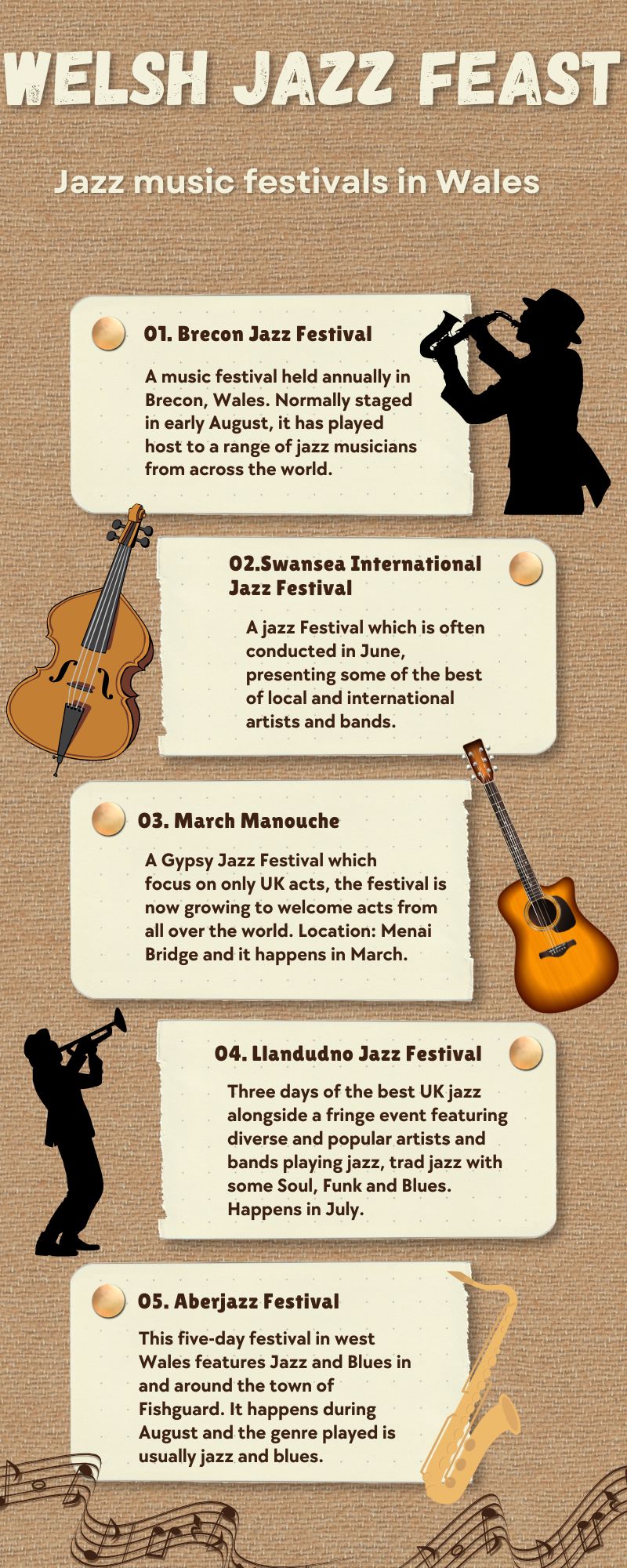It’s World Jazz Day. From pub gigs to music halls, how well is this form of music doing in the city, and is enough being done to support live music?

While rock and pop dominate the music scene in Cardiff, Wales, there’s a quieter corner humming with a different rhythm. Here, dedicated jazz musicians and enthusiasts keep the genre alive, fostering a community that thrives in smoky clubs and prestigious concert halls alike. Live jazz fills pubs and restaurants. International Jazz Day is a reminder of how music transcends differences, bringing people together in a shared love for improvisation and soulful expression.
Dedicated venues and passionate musicians keep the rhythm alive through the live music playing at late night gigs and jazz festivals, showcasing both established and up-and-coming talents. From intimate settings to the larger stages, jazz fills the air. However, some musicians are facing a hard time trying to make a living.
“Though the jazz scene in Cardiff is going in a good direction, this is a tough time for the artists right now. It is also hard for bars and restaurants. Due to the cost of living crisis and the energy costs, such places can’t afford to be open. Since it is affecting the venues like these, and also in terms of government and arts council funding, musicians find it hard to find venues to perform” said Andrew Bain, Head of the jazz department, Royal Welsh College of Music and Drama.

Musicians struggle due to the limited performance space in the city. The closure of music venues in recent years has significantly impacted the jazz community, particularly smaller, fledgling bands. Finding affordable performance spaces remains a hurdle, limiting the opportunities for musicians to hone their craft and connect with audiences.
The closure of St. David’s Hall was a blow to the Cardiff music scene. Lost performance opportunities and income streams have created financial strain, disrupting the carefully planned schedules of many musicians. “The thing about St. David’s Hall is really sad. We still don’t know when they are going to reopen. We used them quite a lot before. But fingers crossed, we’ll soon hear the hall will be open again,” he said.
The financial strain some of them face is undeniable. Low pay, coupled with the often unpredictable nature of gigs, makes it difficult for musicians to make ends meet. Many juggle teaching, session work, or even full-time jobs outside of music, leaving less time to hone their craft and develop as artists.
“There are musicians who struggle daily due to the horrendous council cuts going on, which is really hard on them. In Cardiff, though not many are struggling, some still are. But people are very busy, you see. They do play in a lot of gigs, it’s not so much just jazz, but they play in parties and functions and background music. People need to earn money and pay rent, as we know it keeps going up and it seems to never stop,” Mr. Bain says.
According to him, if certain artists have a passion for teaching, they might do tutoring sessions a couple of days a week, which pays their rent. This way, they would also have creative freedom. Some would write and compose songs for a band that help them earn. “It depends on the lifestyle they want. In Cardiff, it has got to be a mixture of a lot of different things. Otherwise, they would be restricted in only performing,” he said.

Even with the venue closure and financial struggle, their creative spirit is not silenced. Musicians are finding alternative stages in pubs, cafes, and community centres. Their skill in securing gigs is something to admire. Lunchtime free jazz gigs might attract a smaller audience compared to mainstream music events. Yet, dedicated jazz enthusiasts form a loyal and passionate community. Smaller venues catering to this niche audience still thrive, offering a platform for experimentation and discovery.
“There are established gigs, like the bands playing in a main venue full-time. There are also artists playing in pubs and bars in the middle of Cardiff. So there are opportunities for regular people to play. There has to be drum, bass, guitar to play backing bands and try to get involved in it, which is good. We don’t have many full-time venues, so there are minimal opportunities,” says Mr. Bain.
The Cardiff jazz scene isn’t just about the music, but also about the strong sense of community that binds its musicians together. Jam sessions become breeding grounds for collaboration where they share the language of improvisation. According to Mr. Bain, who is also drummer of a band, their onstage interactions can be filled with a thrilling tension. This tension isn’t personal. “That is a part of what we do. It can be a fallacy, but jazz musicians tend to get along,” he said, “Jazz is all about the people you play with. It’s all about the group and being flexible. Jazz has that power. If you know the song, you can play it with people you have never met before, anywhere. Jazz works,”

Cardiff’s jazz scene, like the music itself, is an improvisation – a constant adaptation to the changing soundscape. While challenges exist, the flexibility of the artists to perform anywhere adds as an advantage. Unlike other music genres with a more rigid structure, jazz thrives on flexibility. “The musicians go out and find their own gigs, rather than waiting for an offer. They go to their favourite pub or coffee shop and just ask the landlord- hey, would you like to have a jazz band to try out tonight? So they are really proactive. Artists can find alternative venues, which is good though it is a struggle,” he says.
There are glimmers of hope. Jazz education programs in schools and universities like The Royal Welsh College of Music and Drama are nurturing a new generation of jazz enthusiasts. In addition, some bars and restaurants are recognizing the value of live jazz, offering regular performance slots. “Our jazz course is slowly transforming the Cardiff jazz scene and there are graduates who are staying back and pursue it,” said Mr. Bain
Cardiff’s jazz scene is still alive in intimate venues and music festivals. It’s a testament to the city’s artistic spirit, where dedicated musicians keep the genre alive through their creativity and collaboration. It offers a unique listening experience and it is a place where tradition meets innovation, where passion for the music transcends the limitations of conventional venues.
The future of Cardiff’s jazz hinges on the adaptability and the audience, where both established and emerging artists can flourish. “There has to be a bigger audience, jazz should connect communities as it has lost that connection now. We are working on that to get the young folks listening,” Mr. Bain said, “We just have to adapt, which is what musicians always do. The music will survive, though it might be a bit of a challenge.”

